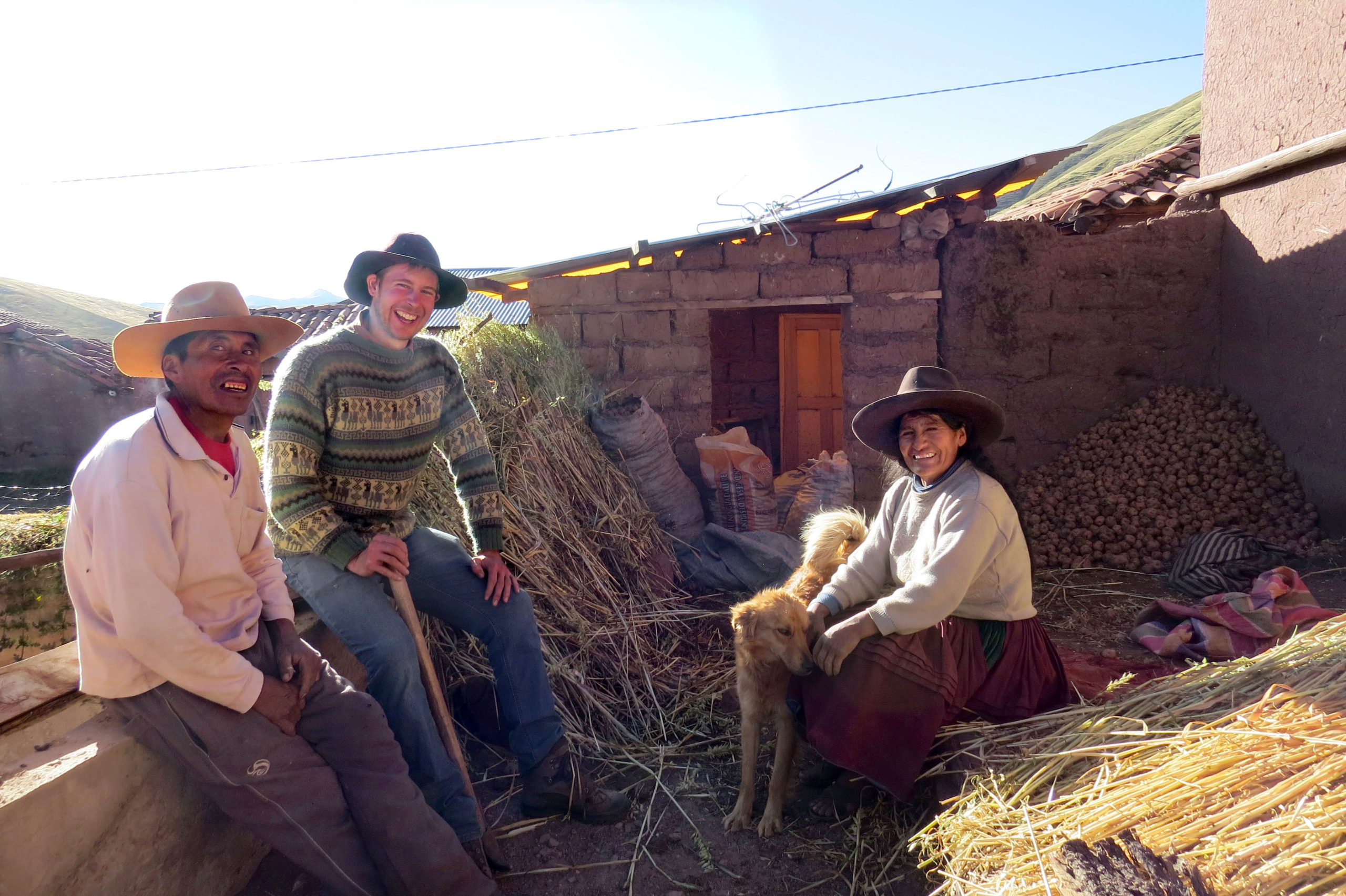Saving Up for a Brighter Future in Peru
Story

Señor Balbino, a Peruvian dairy farmer, handed a small worn box to Frédéric Rivard, a Canadian volunteer.
The box was filled with 4,500 Peruvian soles – almost a year’s worth of earnings for the average person in Pampamarca, where Señor Balbino lives.
Out of all the experiences during his time in Peru, Frédéric never would have anticipated this one. But there he stood, entrusted with a large sum of money by a man he had met only months before.
Señor Balbino gave Frédéric the money to purchase a computer for his son, Johan. He had promised to buy Johan a computer if he worked hard in school and got accepted into university. Johan met his end of the bargain, and would soon have a new computer to kick-start his dream of becoming a programmer.
This large sum of money couldn’t have been earned and saved if it weren’t for the microfinance services Señor Balbino accessed through Cuso International’s local partner, the Arariwa Association.
As a Cuso International volunteer, Frédéric was helping the association promote microfinance in Pampamarca. Microfinance is an affordable form of credit for people with no collateral and limited access to traditional banking. By forming small groups, these people create their own communal bank, and can support each other in lending and repaying loans.
For dairy farmers like Señor Balbino, using a loan to purchase just one or two cows can increase milk production and income by as much as 200%. This extra income will significantly improve his family’s quality of life. Not only can they afford basic necessities like food and school, they can also save up for more costly, life-changing experiences like university.
Growing up on a small farm in rural Quebec, Frédéric was accustomed to living in a remote area, but he wasn’t accustomed to the culture and language in Pampamarca. To integrate into the community, he dedicated himself to learning Quechua, the native language.
“With time and persistence, and a real dedication to learning about the villagers and their needs, I began to break through,” Frédéric said. “They began to talk to me, to trust me and to welcome me with open arms into their community.”
Once Frédéric became a trusted friend, he helped 150 people – mostly women – get microloans. Women in communities like Pampamarca take on the majority, if not all, of farming and household responsibilities. That means when they receive a loan, they are likely to use it in a way that will benefit their entire family.
Frédéric also supported farmers who wanted to make key changes to their business models. He helped them formalize their production and distribution chains so they could expand their sales beyond local farmers’ markets into more formal markets such as restaurants and hotels. By selling in these new markets, they could increase the prices they charged by as much as 400%.
Frédéric felt honoured to play a part in helping Señor Balbino and the other residents of Pampamarca improve their livelihoods and lives.
“I will be forever changed by my volunteer experience and the people I met in Peru,” he said.